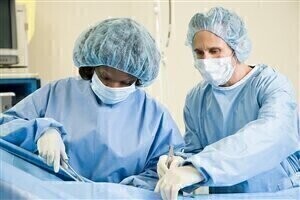Gas Detection
Scotland First in the World to Ban Potent Greenhouse Gas Anaesthetic
Mar 04 2023
Scotland has become the first country in the world to ban the use of the anaesthetic desflurane in hospitals due to its environmental impact. Desflurane is a potent greenhouse gas that is used to keep patients unconscious during surgery. NHS data shows that its global warming potential is 2,500 times greater than carbon dioxide. Banning desflurane from use in hospitals across Scotland from its peak use in 2017 will cut emissions equal to powering 1,700 homes per year.
The UK has already seen over 40 hospital trusts in England and a number of hospitals in Wales stop using desflurane in the last few years. NHS England will introduce a similar ban from 2024, which, like Scotland, will prohibit its use for anything but exceptional circumstances. Banning desflurane across NHS hospitals in England will cut harmful emissions equivalent to those caused by powering 11,000 homes every year, according to NHS analysis of desflurane use in 2020.
Many countries in Europe are also likely to make similar moves in the next few years. Dr Kenneth Barker, anaesthetist and clinical lead for Scotland's national green theatres programme, was shocked to find out the anaesthetic he had used for more than a decade for many major and routine operations was so harmful to the environment. "I realised in 2017 that the amount of desflurane we used in a typical day's work as an anaesthetist resulted in emissions equivalent to me driving 670 miles that day," he said. "When you are faced with something as obvious as this and with the significance it has to the environment - I am very glad we have got to this stage."
Many hospitals have switched to safe and effective anaesthetic gases with less warming potential, such as sevoflurane, which has a global warming potential 130 times that of carbon dioxide, or using alternative non-gaseous anaesthetics and more efficient equipment. However, Dr Helgi Johannsson, vice president of the Royal College of Anaesthetists, warned that banning desflurane is only the start and just "a drop in the ocean of the NHS carbon footprint". He explained, "The NHS is a really carbon-intensive industry. We need to concentrate on all the other major things that can make a difference too - such as tackling old hospital buildings that are difficult to heat and reducing the journeys patients take."
Overall, anaesthetic gases make up about 2-5% of the NHS's carbon footprint, and efforts are underway to tackle other medical gases like nitrous oxide. NHS England's net-zero strategy includes looking at more environmentally friendly heating and lighting systems, greener vehicles, and examining the environmental impact of how medicines and equipment are supplied to the NHS.
In conclusion, Scotland has set an excellent precedent by banning the use of desflurane in hospitals due to its environmental impact. This move is likely to inspire other countries in Europe to do the same. However, this is just the start of the efforts required to reduce the NHS's carbon footprint. The NHS must continue to concentrate on other major factors, such as reducing the journeys patients take and addressing old hospital buildings that are difficult to heat. With these efforts, the NHS can work towards a more sustainable future while continuing to provide top-quality healthcare to patients.
Digital Edition
AET 28.2 April/May 2024
May 2024
Business News - Teledyne Marine expands with the acquisition of Valeport - Signal partners with gas analysis experts in Korea Air Monitoring - Continuous Fine Particulate Emission Monitor...
View all digital editions
Events
Jul 30 2024 Jakarta, Indonesia
China Energy Summit & Exhibition
Jul 31 2024 Beijing, China
2024 Beijing International Coal & Mining Exhibition
Aug 07 2024 Beijing, China
IWA World Water Congress & Exhibition
Aug 11 2024 Toronto, Canada
Aug 25 2024 Stockholm, Sweden and online










.jpg)








